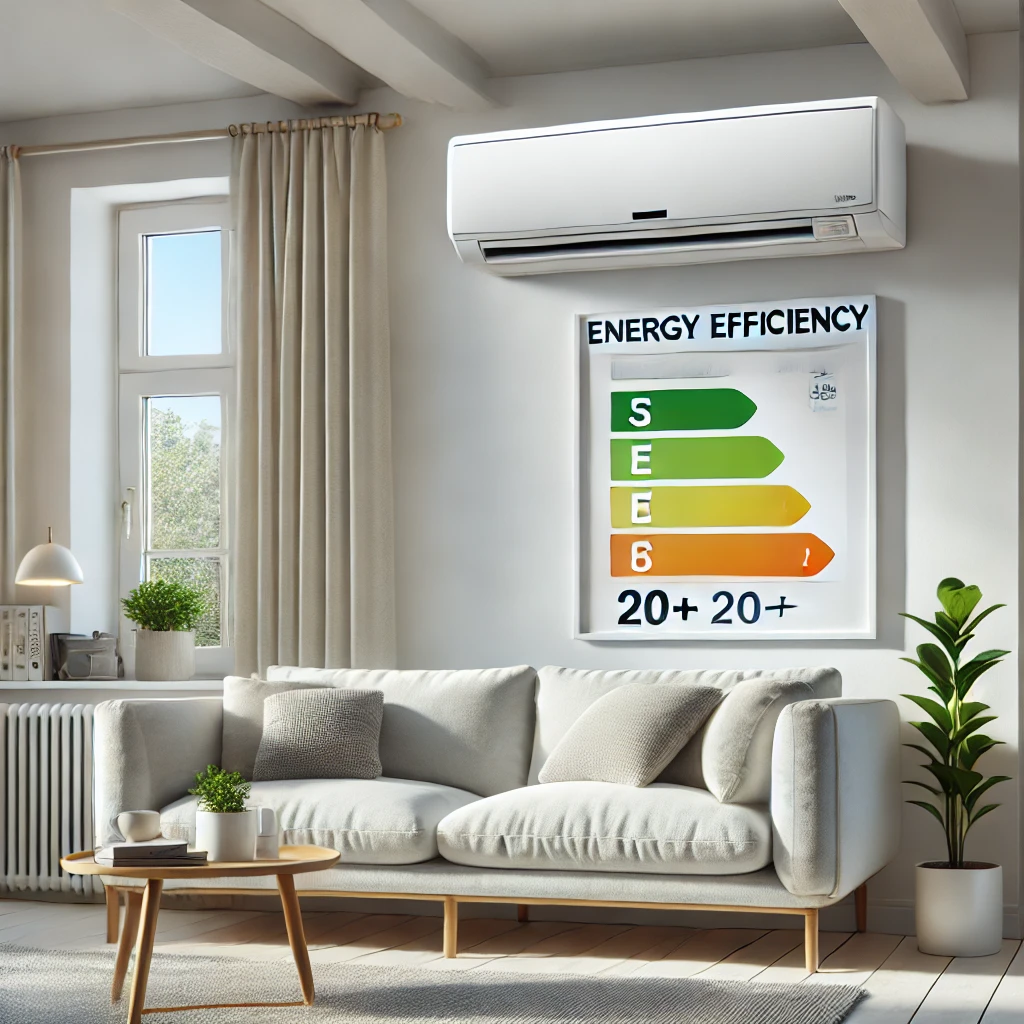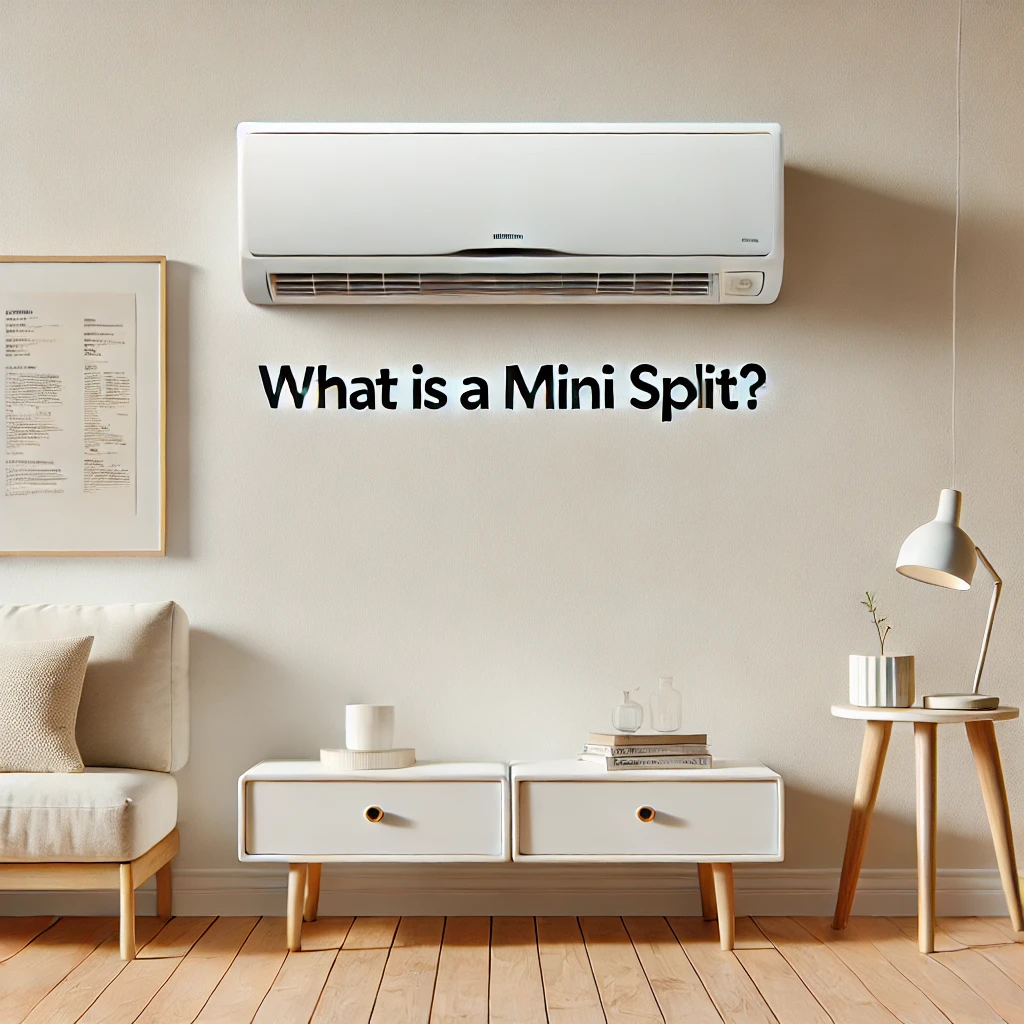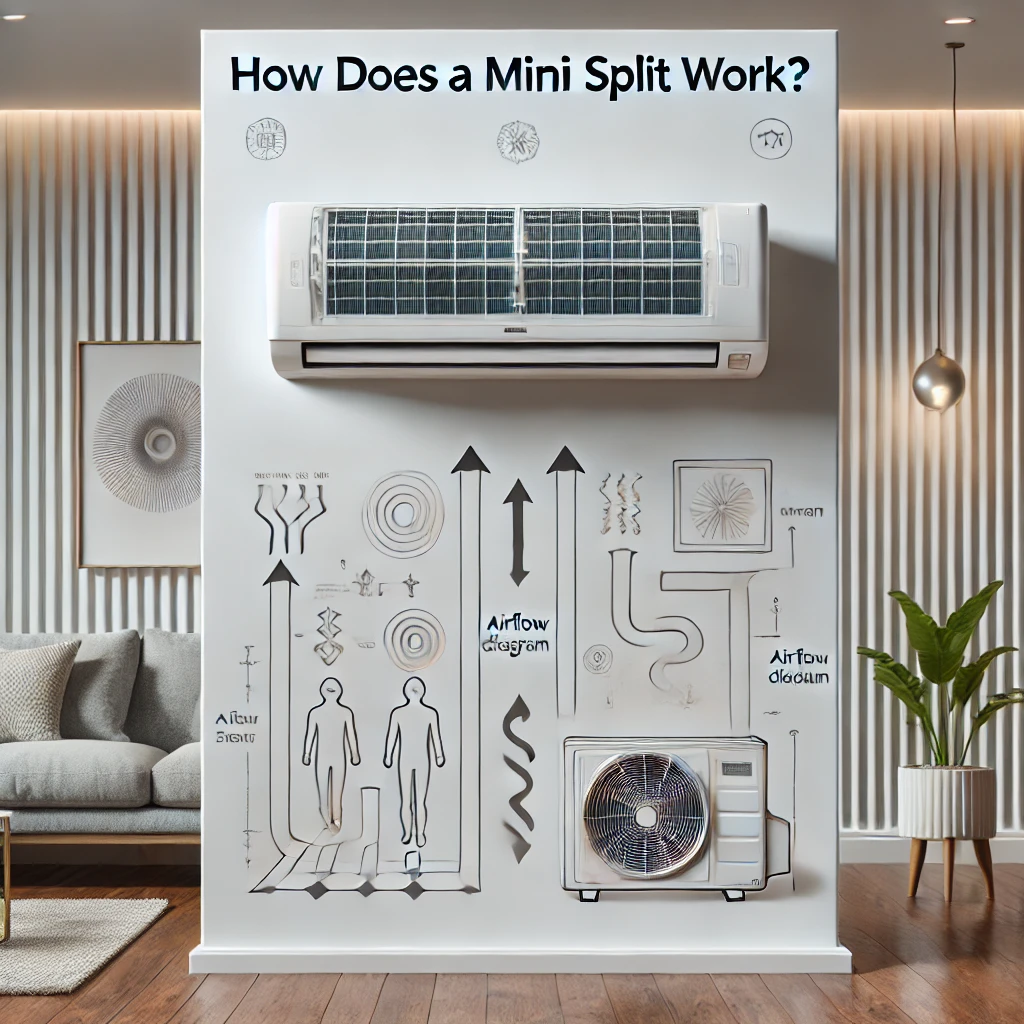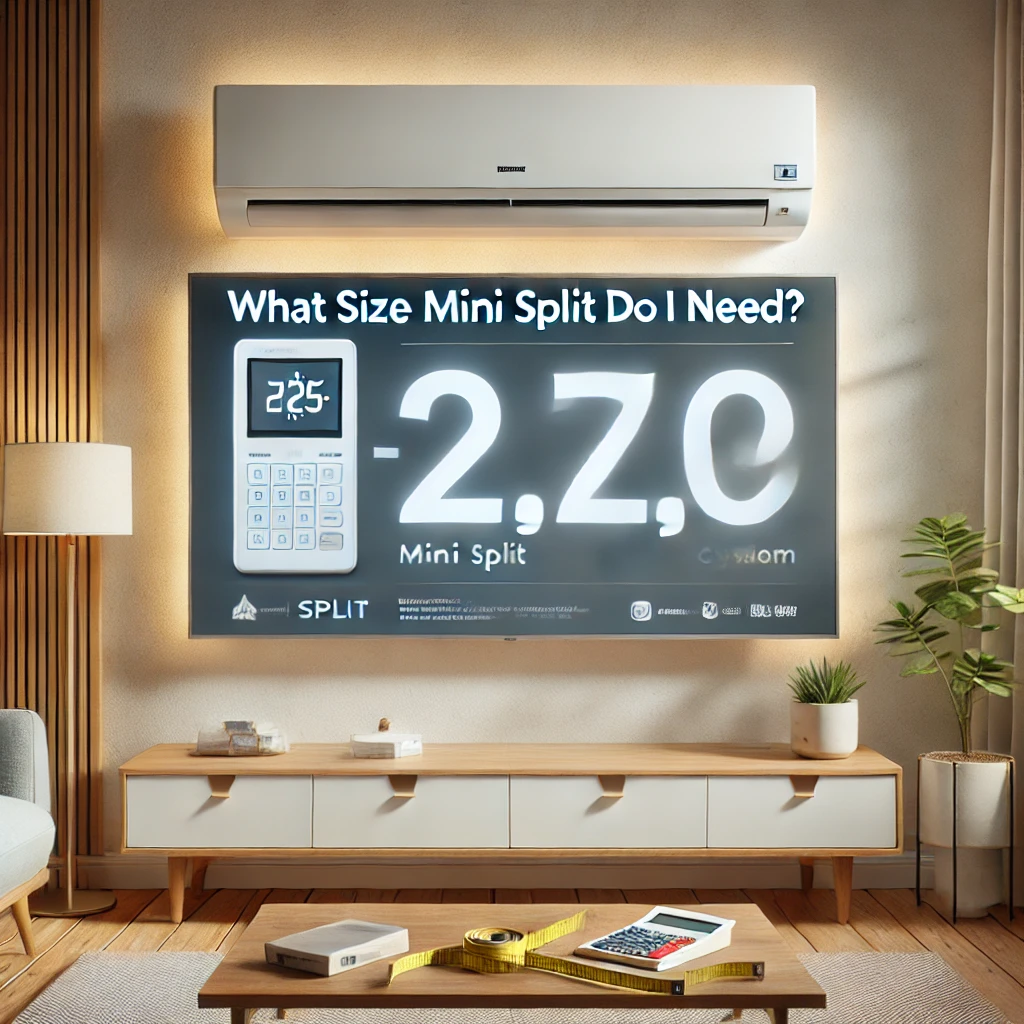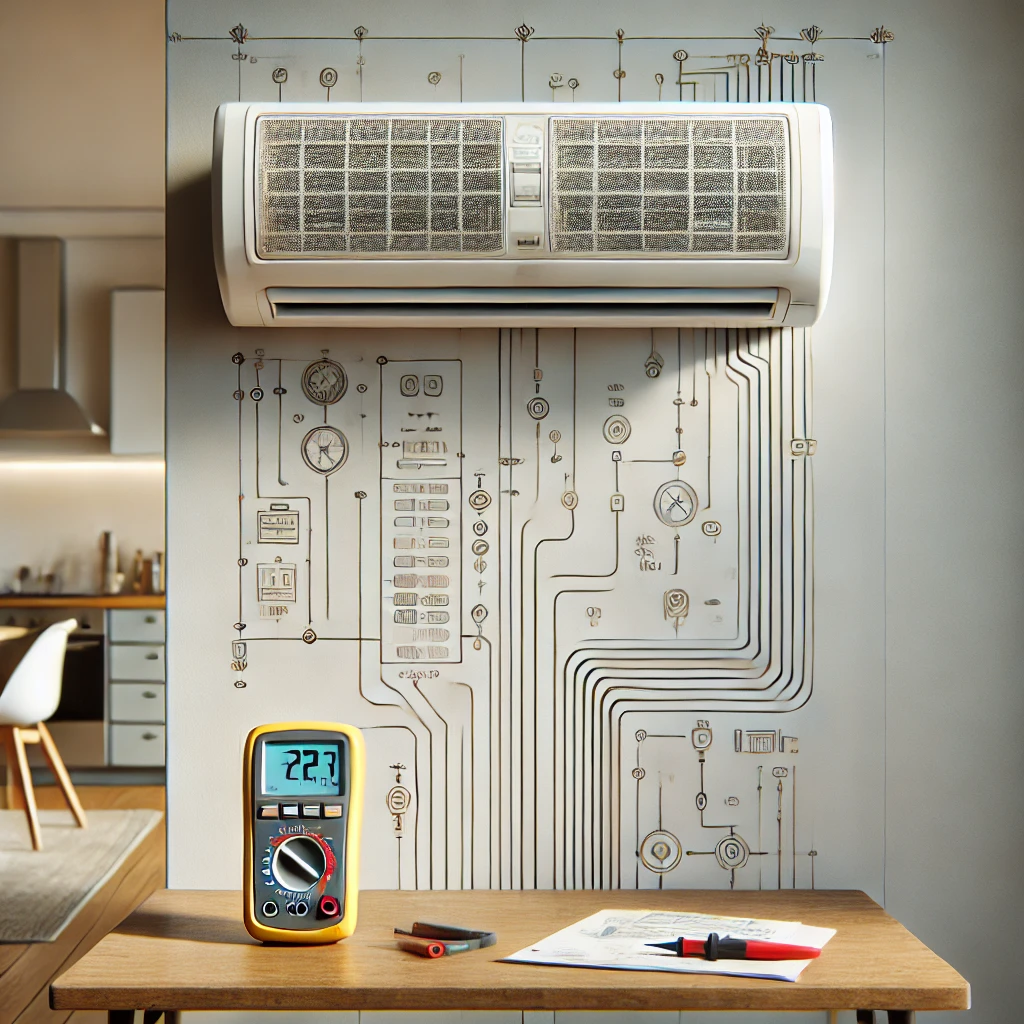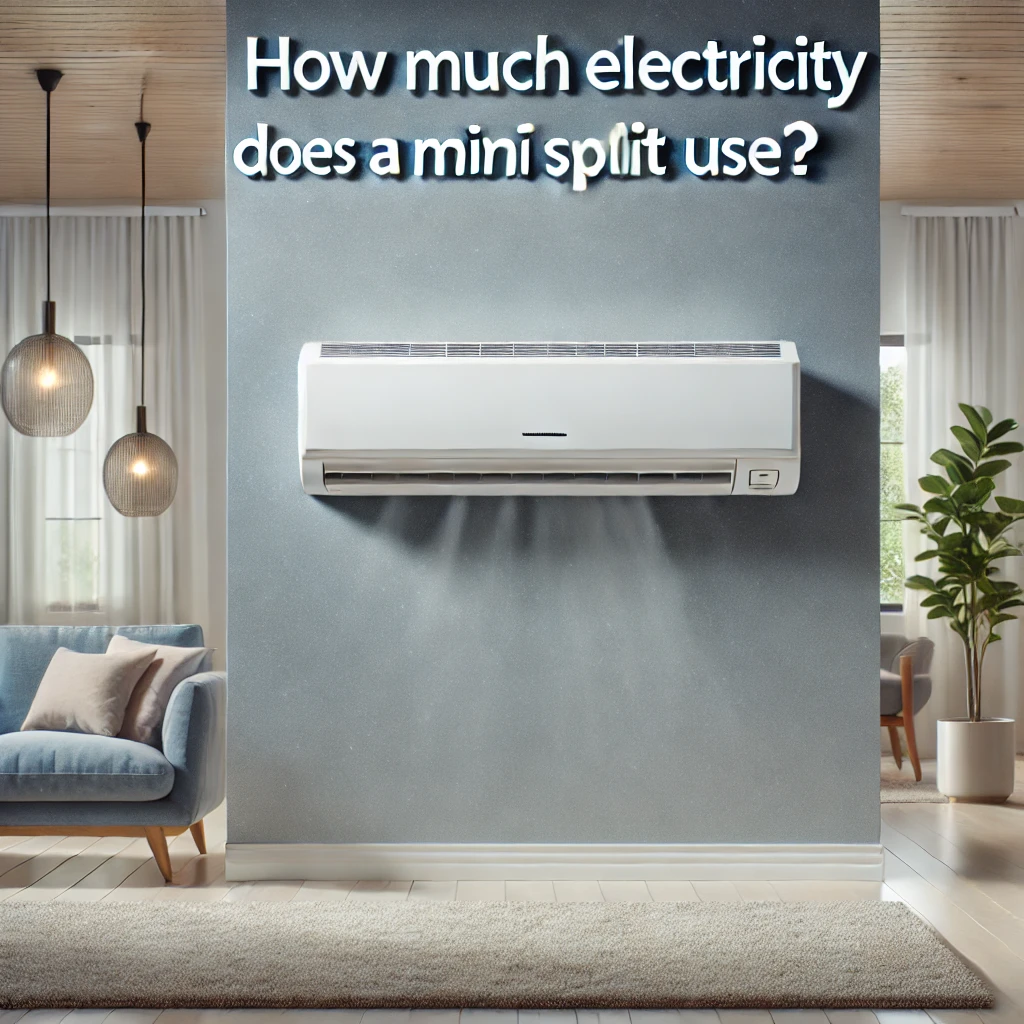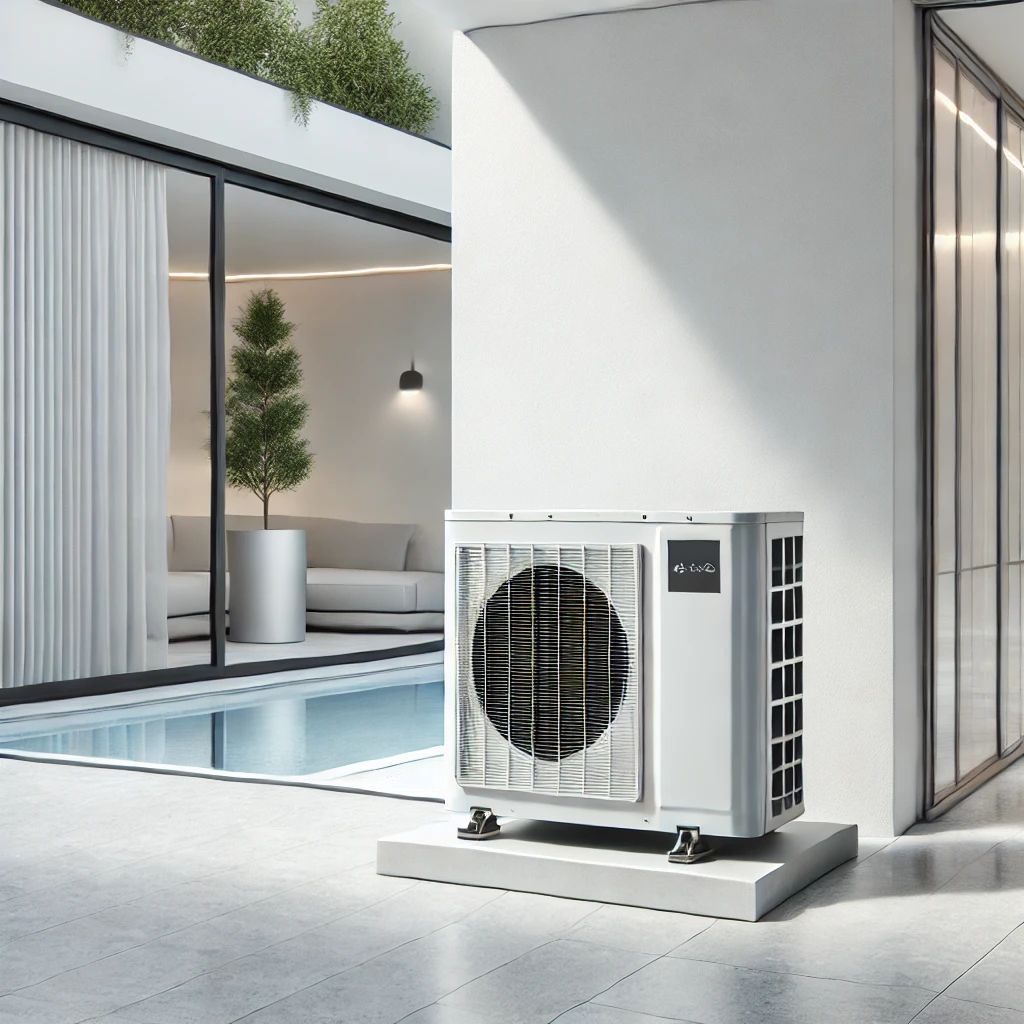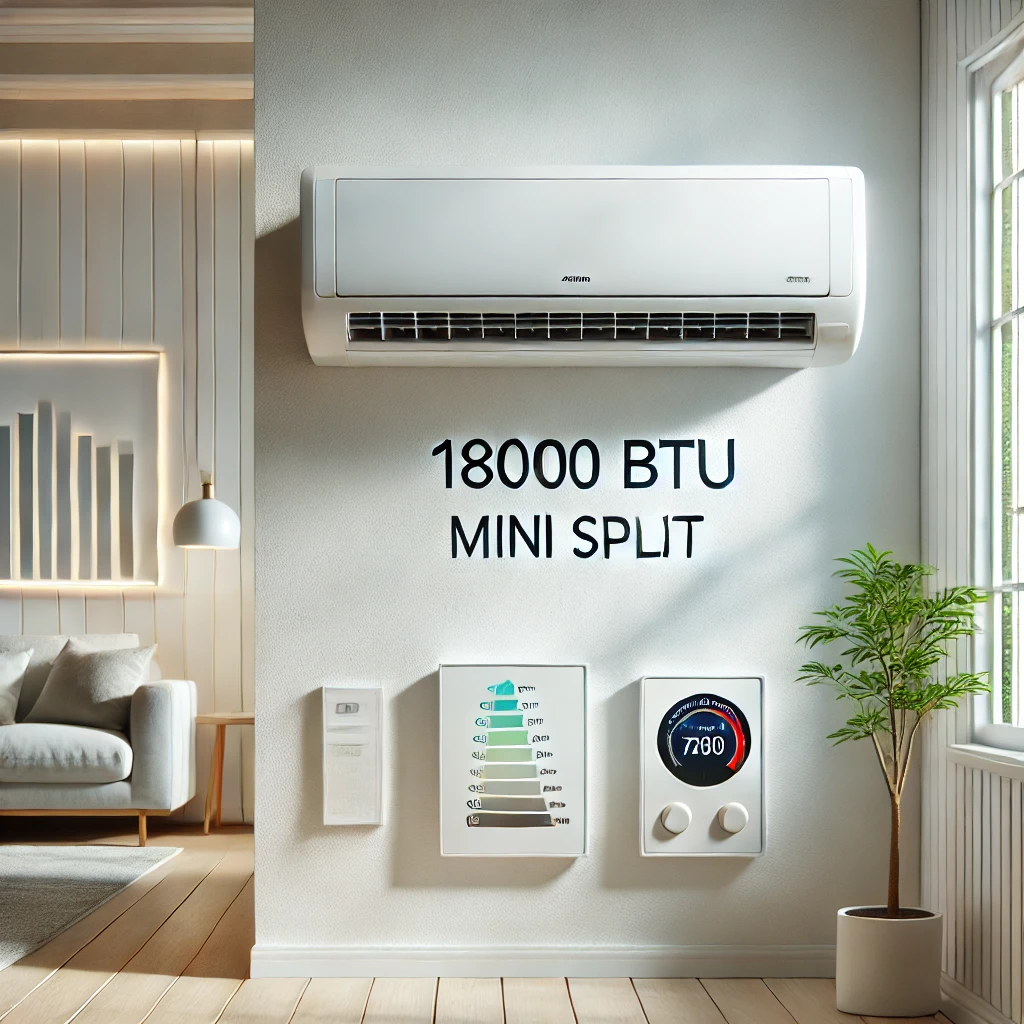SEER stands for Seasonal Energy Efficiency Ratio, and it is a key measure of a mini-split system’s cooling efficiency over an entire cooling season. The SEER rating is calculated by dividing the total cooling output of the system (in British Thermal Units or BTUs) by the total energy input (in watt-hours) during the same period. Higher SEER ratings indicate greater energy efficiency, which translates to lower operating costs for homeowners.
Why is SEER Important for Mini-Splits?
- Energy Efficiency
A higher SEER rating means the mini-split system consumes less energy to produce the same cooling effect. For instance, a mini-split with a SEER rating of 20 will use significantly less electricity than one with a rating of 14, leading to lower utility bills. - Environmental Benefits
Efficient systems with high SEER ratings reduce energy consumption, which lowers greenhouse gas emissions. This makes them an eco-friendly choice for environmentally conscious homeowners. - Cost Savings
Though high-SEER mini-splits may have a higher upfront cost, they pay off over time through reduced energy bills. Depending on your climate and usage, the savings can be substantial. - Comfort
Mini-splits with higher SEER ratings often include advanced inverter technology, which provides precise temperature control and eliminates the need for frequent on-off cycling. This ensures consistent comfort and quieter operation.
SEER Rating Examples for Mini-Splits
| SEER Rating | Efficiency Level | Remarks |
|---|---|---|
| 13–16 | Standard Efficiency | Basic models; suitable for mild climates. |
| 17–20 | High Efficiency | Energy-saving; ideal for most households. |
| 21+ | Ultra-High Efficiency | Premium systems; best for extreme climates or eco-conscious users. |
Choosing the Right SEER Rating
The right SEER rating for your mini-split depends on your specific needs:
- Mild Climates: A SEER rating of 16–18 is often sufficient.
- Hot or Humid Climates: Opt for systems with a SEER of 20 or higher for maximum efficiency and savings.
- Budget: Higher SEER systems cost more upfront, but rebates and incentives can help offset the cost.
Understanding SEER ratings can help you make an informed decision when choosing a mini-split system for your home or business.
